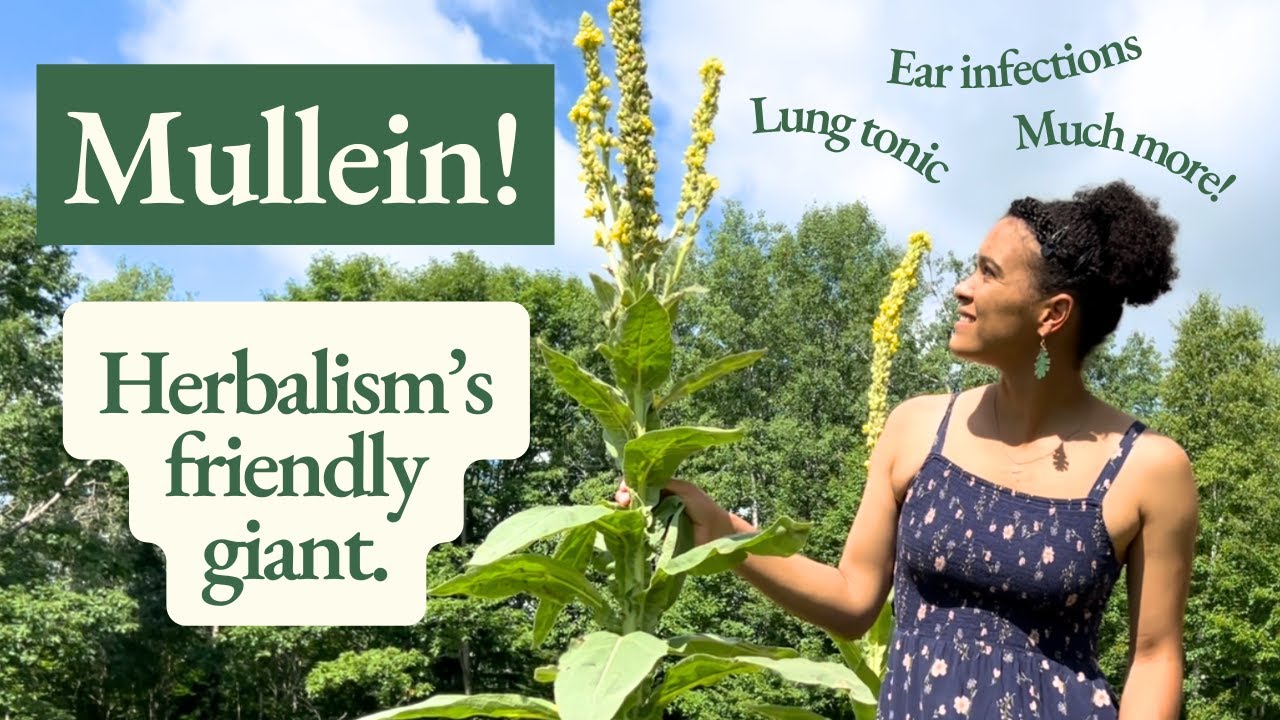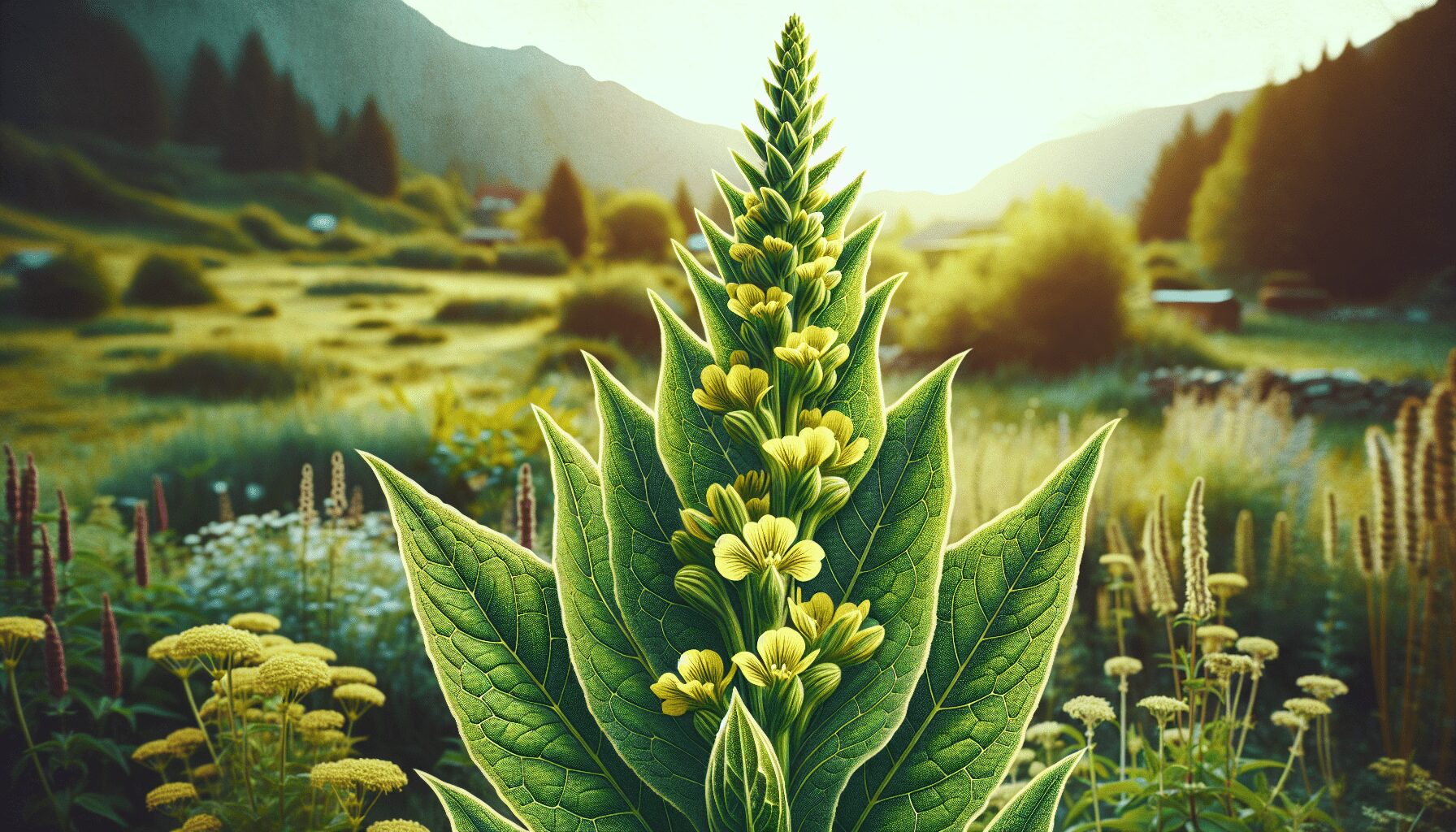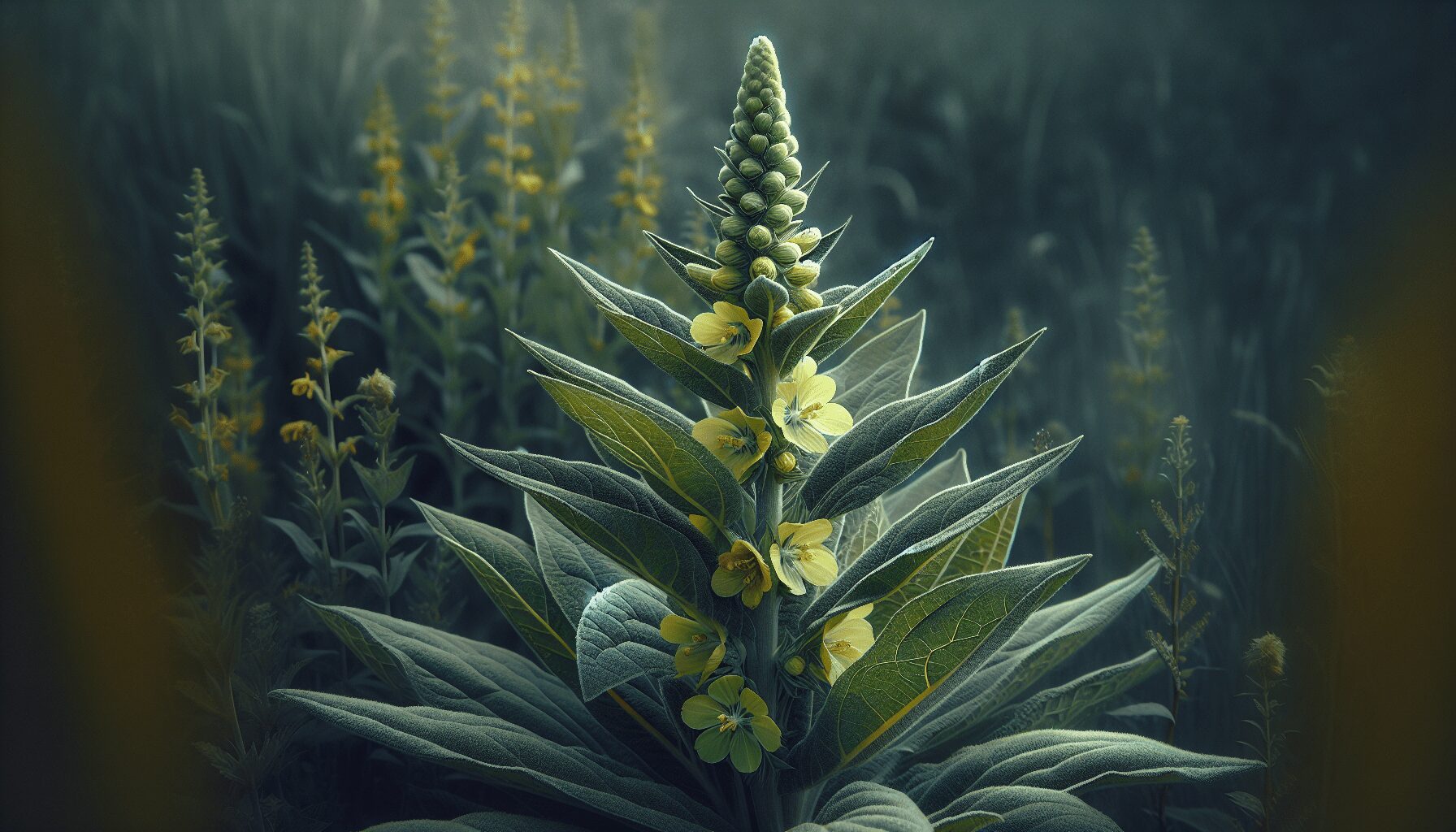Embark on a journey to discover the remarkable benefits and historical uses of Mullein, a giant in the world of herbal medicine. In “Mullein! Health Benefits & Medicinal Uses,” Da, a passionate gardener, herbalist, and nature enthusiast from The Acadian Garden & Apothecary, provides an insightful video discussing how Mullein can be incorporated into your personal apothecary and garden for a variety of health benefits.
You’ll learn that Mullein, beyond being a highly effective lung tonic, possesses antiviral, anti-inflammatory, and analgesic properties that can treat a range of conditions such as respiratory issues, skin conditions, and even ear infections. With scientific research supporting its traditional uses, this mighty plant that you might find growing along sunny paths and backyards could become a cornerstone in your health journey.

This image is property of i.ytimg.com.
Identifying Mullein
Appearance and Growth Patterns
Mullein is a biennial plant, and a fascinating one at that. In its first year, you’ll notice it growing low to the ground, producing a rosette of soft, fuzzy leaves. These leaves are often confused with Lamb’s Ear due to their similar texture. Come the second year, mullein truly shows off by shooting up a tall stalk that can reach up to 10 feet in height. You might think it happens overnight! This stalk is adorned with yellow flowers, making mullein hard to miss in your garden or growing wild along sunny paths, roadsides, and backyards.
Common and Great Mullein
When we talk about mullein in herbal medicine, we’re usually referring to two types: Common Mullein (Verbascum thapsus) and Great Mullein (Verbascum giganteum). Common Mullein is more widespread and typically the one you’ll encounter, characterized by its smaller stature compared to its ‘great’ counterpart. Both bring a plethora of health benefits and are key players in traditional and modern herbal practices.
Historical Background
Roman Soldiers and Torches
Mullein has a storied past, etched into the annals of history by none other than Roman soldiers. They would dip mullein’s tall flowering stalks in tallow or wax to create torches. These fiery beacons were not only essential for light but also for safety during their nocturnal journeys. The plant’s tall, straight form makes it an ideal candidate for such purposes, a true testament to the ingenuity of ancient practices.
Indigenous American Uses
Indigenous Americans have long recognized the versatility of mullein. They would line their moccasins with the soft, fuzzy leaves to keep their feet warm during colder months. Additionally, the crushed seeds were sometimes used to paralyze fish in slow-moving waters, making for easier fishing—a clever use of natural resources.
Mullein as a Lung Tonic
Treating Respiratory Issues
One of the most well-known uses of mullein is as a lung tonic. This plant is highly effective in treating a variety of respiratory issues, making it invaluable during cold and flu seasons. Mullein acts as an expectorant, helping to break up and expel mucus, thereby easing congestion and soothing inflamed airways. This can bring immense relief to anyone suffering from bronchitis, asthma, or a stubborn cough.
Expectorant Properties
Mullein contains mucilaginous compounds, which coat and soothe irritated mucous membranes. This not only lessens the urge to cough but also helps to calm inflamed tissues. For those with chronic respiratory conditions, regular use of mullein, whether in tea or tincture form, can aid in maintaining clearer airways and overall improved lung health.
Mullein for Skin Conditions
Application Methods
Applying mullein to your skin can be done in various ways. You can use it in the form of an infused oil, ointment, or even a poultice. For an infused oil, simply steep mullein leaves or flowers in a carrier oil like olive oil for several weeks. This can then be applied directly to the affected areas.
Common Conditions Treated
Mullein has been used to treat a range of skin conditions including hemorrhoids, ulcers, burns, and rashes. Its calming and healing properties make it effective for providing relief and promoting recovery. By applying mullein to the skin, you harness its anti-inflammatory and antimicrobial abilities, helping to soothe and heal the affected area.

Scientific Backing and Research
Recent Studies
Science is catching up with traditional wisdom, and recent studies have validated many of mullein’s uses. Research has shown that mullein possesses anti-inflammatory, antibacterial, and antiviral properties. For instance, its effectiveness in treating respiratory issues isn’t just folklore—it’s backed by scientific data highlighting its expectorant and antiviral actions.
Validated Traditional Uses
Traditionally, mullein has been used for its calming effects on the respiratory system and its ability to treat skin conditions. Modern research supports these uses, showing that the plant’s bioactive compounds can significantly reduce inflammation and fight off infections. These findings confirm that mullein is not only effective but also safe for various medicinal applications.
Antiviral and Antibacterial Properties
Flavonoids and Bioactive Compounds
Mullein is rich in flavonoids and other bioactive compounds that contribute to its antiviral and antibacterial effects. Flavonoids are known to combat viruses by preventing them from replicating. This includes notorious viruses like the herpes simplex and even influenza.
Applications in Viral Infections
Because of these properties, mullein can be particularly useful during viral outbreaks. Whether it’s through inhaling the steam of a mullein tea or using a prepared tincture, the plant can provide relief from symptoms and aid in the body’s fight against viral infections. This makes it a valuable addition to your natural medicine cabinet during cold and flu season.

Mullein Tea and Tinctures
How to Prepare
Making mullein tea is a breeze. Simply steep dried mullein leaves or flowers in hot water for about 15 minutes. Remember to strain it well to remove any fine hairs that might irritate your throat. For tinctures, you’ll need to steep the plant material in alcohol (like vodka) for several weeks, shaking it occasionally to ensure the compounds are well extracted.
Health Benefits
Mullein tea and tinctures offer a multitude of health benefits. They can soothe sore throats, reduce coughing, and help alleviate inflammation. These preparations are also excellent for respiratory health, aiding in the expulsion of mucus and providing calming effects for irritated tissues. Incorporating mullein tea or tincture into your routine can bolster your overall respiratory wellness.
Pain Relief and Inflammation
Mullein-infused Oils
Mullein-infused oils are great for topical pain relief. By infusing mullein in a carrier oil, you can create a remedy that can be massaged into sore muscles or arthritic joints. This oil is particularly effective due to mullein’s anti-inflammatory properties, which help reduce pain and swelling.
Soothing Sore Throats and Tonsillitis
Gargling with mullein tea or using a mullein tincture can work wonders for sore throats and tonsillitis. Mullein’s soothing qualities help to alleviate pain and reduce inflammation in the throat. This makes it an excellent remedy for those struggling with these uncomfortable conditions.
Incorporating Mullein into Your Apothecary
Growing Your Own Mullein
Growing mullein in your garden is relatively straightforward. It thrives in well-drained soil and sunny locations. As a biennial, you’ll see lush leafy growth in the first year and expect a tall flowering stalk in the second. It’s a resilient plant that can self-seed, providing you with a continuous supply.
Sourcing from the Wild
If you’re looking to source mullein from the wild, it’s important to identify it correctly and ensure you’re harvesting from a clean, uncontaminated area. Look for plants growing along sunny paths and roadsides, but be cautious of those too close to polluted areas. Always practice sustainable harvesting by taking only what you need and leaving enough for the plant to continue thriving.
Conclusion
Embracing Mullein in Everyday Health
Mullein is a mighty, magnificent plant with a rich history and an array of health benefits. From respiratory relief to soothing skin conditions, it offers a natural solution for many common ailments. By incorporating mullein into your daily health routine, you can tap into its powerful healing properties.
Final Thoughts and Considerations
As you explore the uses of mullein, you’ll find it a versatile and valuable addition to your natural health practices. Whether you grow it, buy it, or harvest it from the wild, mullein’s benefits are well worth the effort. Embrace this marvelous herb, and it will serve you well in maintaining and improving your health.